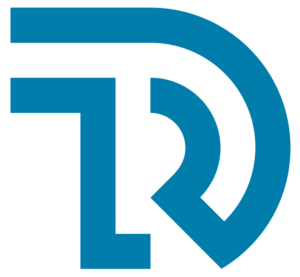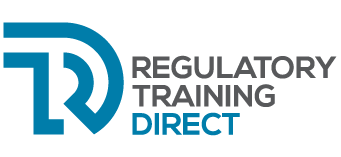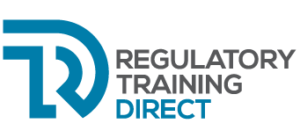current affairs
Issue 235 | April 2023
Sponsorship opportunity: Sponsor an issue of this newsletter and promote your company to thousands of potential customers! To enquire, contact us on info@regulatorytrainingdirect.com
Training news
This month we have added two new experts to the team – Gary Kennedy and Lisa Owen from Correct Food Services. They are Australia’s pre-eminent food trainers and consultants. They will be presenting the course 2.02. Food Labels. This course has been totally revised and expanded. A summary of the agenda is here. We will soon be offering additional new food courses 2.01. Food Ingredients and 2.03. Food Claims.
Follow us on LinkedIn: We hope you like our newsletter. If you want to receive up-to-the-minute announcements on new courses, new content and vital regulatory updates follow us on LinkedIn.
Regulatory news
Complementary Medicines and Medical Devices:
Disposable vapes to be banned – a world first. The Health Minister Mark Buter has announced that disposable vapes will be banned, but access will be available through a medical doctor’s prescription. There is concern about the high number of young people becoming addicted to nicotine through the use of vapes. One in six teenagers between 14 and 17 have vaped and a quarter of 18 to 24-year-olds have vaped. Butler stated “Vaping was sold to governments and communities around the world as a therapeutic product to help long-term smokers quit. It was not sold as a recreational product – especially not one for our kids. But that is what it has become: the biggest loophole in Australian history.” Additional funding will be provided to Australian Border Force and state and territory police forces to assist the enforcement of the ban. The import of all non-prescription vapes will be banned. Vapes that remain legal via prescription will have restrictions placed on flavours and colours, level of nicotine and will have pharmaceutical style packaging. Read more at Sydney Morning Herald, ABC News and The Guardian.
Guidance on mushroom products. Some mushrooms may be foods, or they may be complementary medicines. Mushroom extracts that are advertised with therapeutic claims, including claims about the treatment or prevention of disease, are therapeutic goods/complementary medicines. This guidance explains when mushroom products used for therapeutic purposes are likely to be considered foods, and when they are likely to be considered medicines. Source: TGA.
Product recalls
BioCeuticals is recalling one Batch 220380 (exp 02/2024) of Ultra Potent-C Chewable(60s) (AUST L 208690) following a consumer report of a metal fragment found in one tablet. Source: TGA
Compliance action
Infringement notices totalling $66,600 issued to three Sydney-based companies and two associated individuals for the alleged unlawful importation of a combined total of 101,900 nicotine vaping products. JL Partners (AUST) Pty Ltd, Wjwing Pty Ltd, TSJ Logistics Pty Ltd and two individuals (one a director of one of the companies and the other a director of all three companies), attempted to import nicotine vaping products (prescription medicines) that were not registered in the Australian Register of Therapeutic Goods (ARTG) and were not exempt from being registered. The unapproved nicotine vaping products were intercepted by the Australian Border Force and will be seized and destroyed under advice from the TGA. Source: TGA
Consultations
Three different consultations relating to the manufacture of medical devices by dental and oral health professionals at the point-of-care. The TGA is currently conducting four surveys, each targeted at major stakeholder groups involved. Links here, here and here.
Proposed amendments to the Poisons Standard. Including amygdalin and hydrocyanic acid, found in some herbal substances. Consultation closes 17th May. Source: TGA
Infringement notices: A list is available here, this indicates who was issued with the notice, the amount of the infringement notice and the alleged contraventions of the Therapeutic Goods Act that led to the infringement notice being issued.
Herbal adulterants To combat the adulteration of ingredients and finished products, the nonprofit Botanical Adulterants Prevention Program (BAPP) has published over 80 free peer-reviewed scientific resources on this subject including Laboratory Guidance Documents, Adulteration Bulletins, Adulteration News, and additional QC tools. They are all designed to help manufacturers and importers improve ingredient specifications and detect adulteration. And, when ingredients are received and found to be adulterated and cannot be lawfully remediated for any use, anywhere, the “BAPP SOP Best Practices for the Disposal/Destruction of Irreparably Defective Articles” provides a responsible solution to prevent the resale of these defective materials into international commerce. Anyone involved in the supply of herbs and herbal medicine is urged to utilize these free resources. https://www.herbalgram.org/resources/botanical-adulterants-prevention-program/
In the press
Chemist Warehouse, former health minister’s lobby group, among vape shareholders. Sydney Morning Herald
Melatonin gummies in USA inaccurately labelled. One contains up to 347% more than what was listed on the label, one contained no melatonin but included CBD. Medscape.
Foods:
Steviol glycosides: risk assessment report. The Food Standards Code allows steviol glycosides to be added to certain foods as a food additive. There are three approved ways to produce steviol glycosides in Australia and New Zealand:
Extraction directly from the leaves of the stevia plant, followed by concentration and purification.
Use of enzymes to convert stevia leaf extract into different types of steviol glycosides. The enzymes used in this process are sourced from genetically modified microorganisms.
Fermentation from sugar (not from the stevia plant) to produce the steviol glycosides using genetically modified yeast.
The conclusion was “based on the current evidence available for this assessment, there are no public health and safety concerns identified from the current use of steviol glycosides in the Australian and New Zealand food supply.” Read the full report here.
Approvals:
FSANZ has approved and notified the Food Ministers’ Meeting of the variations to the Code arising from the following applications:
A1255 – Alpha-amylase from GM Bacillus subtilis as a processing aid
A1256 – Colour of pregnancy warning labels for corrugated cardboard packaging
P1057 – Review of the kava standard
Current calls for comment updated 26th April 2023 (from FSANZ):
Proposal P1028– Infant Formula: To revise and clarify standards relating to infant formula products comprising category definitions, composition, labelling and representation of products. To read the call for submissions report click here. Submissions on this application are due by 6pm (Canberra time) 7 July 2023.
Application A1264 – Food derived from drought-tolerant and herbicide-tolerant soybean line IND-00410-5: To seek approval for food derived from soybean line IND-00410-05, genetically modified for drought and herbicide tolerance. To read the call for submissions report click here. Submissions on this application are due by 6pm (Canberra time) 7 June 2023.
Application A1262 – Food derived from insect-protected corn line MON95275:To read the call for submissions report click here. Submissions on this application are due by 6pm (Canberra time) Thursday 18 May 2023.
Food Recalls
Jabsons Tandoori Roasted Peanuts (140g)- presence of an undeclared allergen (Milk) Source: NSW Food Authority
Efoodz Red Thai Satay Chicken 340g – Incorrect labelling resulting in missing ingredient (chickpea) and undeclared allergens (sesame and crustacea [shrimp]). Source: FSANZ
Fleurieu Milk Company Pouring Cream – potential microbial contamination E.coli. Source: NSW Food Authority
OzEmite Yeast Spread Gluten Free – presence of an undeclared allergen (gluten)Source: NSW Food Authority
Woolworths 6pk Fruit Hot Cross Buns and Woolworths 9pk Fruit Hot Cross Mini – presence of foreign matter (metal). Source: NSW Food Authority
K-mama Enoki Mushrooms 300g – contamination by the bacterium Listeria monocytogenes. Source: NSW Food Authority
Gotzinger Wood Smoked Kabana, 400g – undeclared allergen (milk). Incorrect product was packaged, with cheese kransky included in the smoked kabana packaging. Source: NSW Food Authority
In the press:
Prime drinks aren’t suitable for children and pregnant women. Here’s what the label doesn’t say. Sydney Morning Herald
Food regulatory summary provided by Correct Food Systems
FSANZ has deferred a decision on “added sugar” as an line in nutrition panels until at least November.
Pregnancy warnings on packaged alcohol apply for June 2023
There has been no announcement from FSANZ on the proposal for putting kilojoules on packaged alcohol, which was originally due in April
FSANZ has released a new “Novel Foods List” in April. Two additions: Ashwagandha (Wirthania somnifera) has been determined to be a novel food .. requires a safety assessment …. before it can be sold as a food in Australia and New Zealand (but it ispermitted in complementary medicines) and leaf protein concentrate from Medicago sativa (lucerne / alfalfa) has also been determined to be a novel food.
FSANZ’s “Safe Food Australia” which includes a new section on standard 3.2.2A was released in March.
The meat industry standard AS4696 was re-released in March to be AS4696:2023.
February 2023 saw Australia’s first recalls for Botulism in plant milks.
Cosmetics, Personal Care and TGA Listed Sunscreens:
Consultations
Clarification and updates to the regulation of sunscreens. Consultation period closes 31stMay. Source: TGA
New guidance on competing a pre-introduction report. How to submit a report for “internationally-assessed for human health and the environment”. This is relevant if you have introduced a new chemical and it falls into this category. Source: AICIS
New guidance on competing a pre-introduction report. How to submit a report for “internationally-assessed for human health only” (internationally-assessed for human health but not the environment). This is relevant if you have introduced a new chemical and it falls into this category. Source: AICIS
Chemicals added to the Inventory following issue of assessment (early listing) 30thMarch 2023 and 14th April 2023: CAS 1631962-93-0 Benzene, 1-(2-methylpropyl)-4-(propoxymethyl)- Source: AICIS and AICIS Approved Chemical name Fatty acids, dimers, hydrogenated, polymers with alkanediol and methylenebis[isocyanatobenzene] Source: AICIS
Chemicals added to the Inventory 5 years after issue of assessment certificate. 26thApril 2023. (chemical names not included herein, refer to AICIS link here)
CAS 2905359-75-1
CAS 2914886-87-4
CAS 105761-40-8
CAS 2102038-87-7
CAS 2914158-37-3
CAS 475645-84-2
CAS 87889-51-8
CAS 2062567-96-6
New Zealand news contributed by Michell Cubitt, Smart Regulatory Solutions
Cosmetics – the EPA is consulting on a range of changes to the Cosmetic Products Group Standard 2020. Some of the notable changes are:
A proposal to ban what is termed ‘forever chemicals’ or PFAS (perfluoroalkyl and polyfluoroalkyl substances). The EPA states that although environmental contributions of PFAS from cosmetics may be moderate, their persistence in the environment and potential to bioaccumulate is a concern. Evidence suggests intentional use of PFAS in cosmetics is not essential and alternatives are available. The proposed transition date is 31 December 2025.
Restore the exemption for 24 hour emergency contact number on cosmetic labelling.
Requirement to keep records on information relating to any nanomaterials notified to the EPA Add the UK to the list of countries for alternative labelling compliance.
Add the UK to the list of countries for alternative labelling compliance. https://www.epa.govt.nz/assets/FileAPI/hsno-ar/APP204297/Proposal-to-amend-the-Cosmetics-Products-Group-Standard-2020.pdf
ACCC news:(relevant to all product categories)
The ACCC is the Australian Competition and Consumer Commission, similar to other countries’ fair trading authorities such as the New Zealand Commerce Commission and the US FTC.
Report on Social Media. ACCC has released its sixth report in its Digital Platform Services Inquiry and supports reforms to protect consumers and businesses. Concerns include excessive data collection practices, lack of effective dispute resolution options, prevalence of scams, lack of transparency for advertisers and inadequate disclosure of sponsored content by influencers and brands, and the significant market power of Meta in social media. Source: ACCC
To learn more about how to comply with ACCC requirements, book our course 2.10. Social Media and Advertising which you can read about here
Product safety recall guidelines. Updated 4th April. The recall process involves stopping the supply of a product, informing the relevant authorities of the problem, warning consumers of the hazard the product presents, and offering consumers a remedy in the form of a repair, replacement or refund. Source: ACCC
. . . . . . . . . . . . . . . . . . . . . . . . . . . . . . . . . . . . . . . . . . . . . . . . . . . . . . . . . . . . . . . . . . . . . . . . .
Published by Regulatory Training Direct www.regulatorytrainingdirect.com
Providing regulatory training courses for complementary medicines, GMP, foods, cosmetics dietary supplements.
This newsletter is sent at no charge. You are welcome to forward this to any colleagues who may find it useful. To receive this newsletter regularly click this link
Don’t want these emails? Unsubscribe or Manage Email Subscriptions
Become a sponsor
Showcase your business! Become a Current Affairs sponsor today. To find out more contact us on info@regulatorytrainingdirect.com



